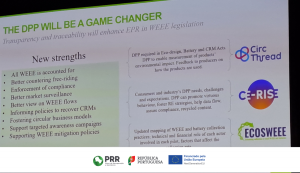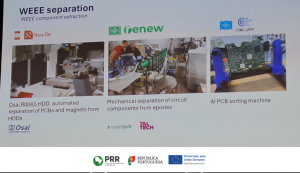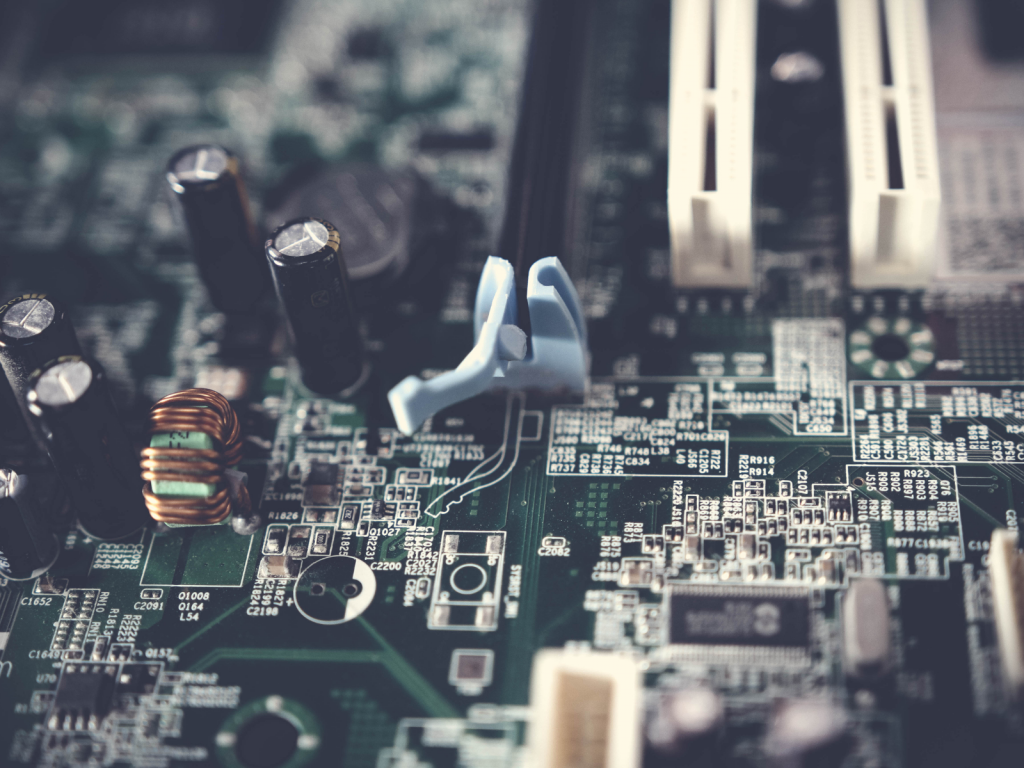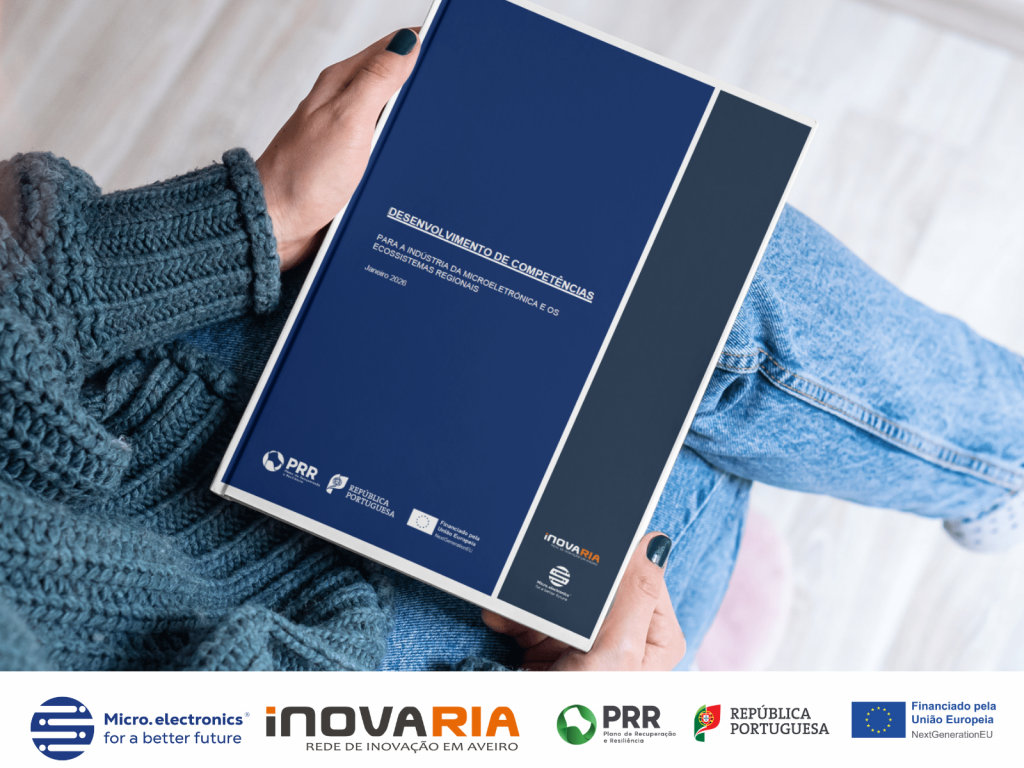The PCI – Creative Science Park Aveiro Region, representing the Microelectronics Agenda, was present at the E-Waste World Conference & Expo, which took place in Frankfurt from June 26 to 27, as part of the consortium’s prospecting and transfer of technology for recycling metals from electronic waste (PCBs).
On the first day of the conference there was a lot of talk about the importance of implementing the Digital Product Passport (DPP) and the impact of the European Right to Repair directive on the circularity of electronic equipment, and several projects were presented that are underway in various European countries with the aim of promoting the recycling of WEEE.
In the exhibition area, the growing use of robotics and AI in sorting and recycling electronic waste was evident. The main industrial players in Europe were present at this event, which is considered to be the most important in the areas of recycling WEEE, batteries, metals and other critical raw materials (CRM).
The Microelectronics Agenda was created as part of the mobilizing agendas of the Portuguese Recovery and Resilience Plan with the aim of strengthening the production and innovation capacity of the national semiconductor and microelectronics industry. It involves a group of 17 partners and seeks to help position Portugal at the forefront of the semiconductor management, production, distribution and recycling market, capable of supplying Europe and other countries worldwide.
The 25 new products, processes and services resulting from the Agenda aim to transform the microelectronics sector and contribute to its resilience, competitiveness and ecological sustainability, and will enable the Portuguese ecosystem to monitor and anticipate the sector’s needs.
The “Microelectronics Agenda” project runs from January 1, 2022 to December 31, 2024 and is co-financed on a non-repayable basis for a total eligible amount of 6.749,3749.13 by the Portuguese Recovery and Resilience Plan through Next Generation EU.









